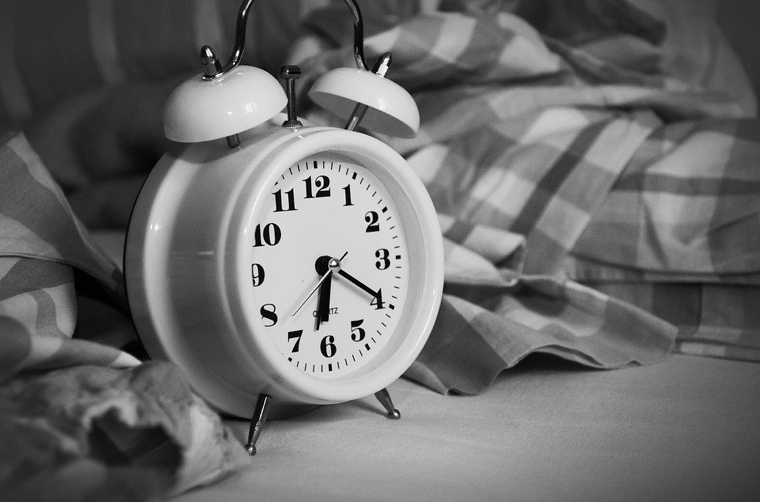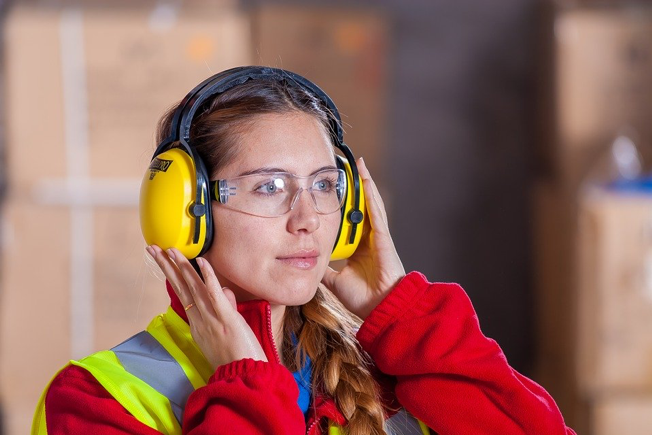Do you have problems with sound sensitivity? Hyperacusis is a hearing disorder that makes it very difficult to hear daily sounds. Experts also call this condition noise or sound sensitivity. If you suffer from sound sensitivity, specific sounds might feel very loud, but people sitting beside you may not even notice it. Hyperacusis is uncommon. Out of every 50,000 people, Hyperacusis only affects one. Another condition linked to hyperacusis is tinnitus.This is normally a ringing or buzzing sound in your ear. A lot of people suffering from this condition can also hear normally.

(Source)
Sound Sensitivity: Symptoms of Hyperacusis
Hyperacusis symptoms can also affect your daily life. These symptoms are:
- Trouble in connecting with others (avoidance and social isolation)
- Relationship problems
- Ear pain
- Anxiety
- Depression
With this condition, some sounds may seem louder than they are, such as:
- A loud conversation
- A car engine
- A kitchen appliance such asa dishwasher and a refrigerator
- A running faucet
For some people, the sound only disturbs them without causing any further symptoms. Of course, others may experience symptoms like seizures or the loss of balance.
Types of Hyperacusis
Hyperacusis is of two kinds; vestibular and cochlear. Cochlear is the common kind, and it causes a general feeling of intolerance, frustration, and pain in the ear for daily sounds. The second type is vestibular, which induces feelingslike imbalance, nausea, and dizziness.This happens when particular sounds are nearby. Both kinds of hyperacusis can be a reason forphonophobia, whichinvolves a fear of normal sounds, social isolation, depression, stress, and anxiety.
Most people confuse recruitment with hyperacusis, but both conditions are different. In recruitment,the ears exaggerate the sound perception that comes under their range of frequency of hearing loss. We can understand the difference by saying that hyperacusis makes every sound too loud, and recruitment makes only specific sounds loud and uncomfortable. An audiologist will perform a loudness discomfort test to identify which condition you are experiencing.
Causes of Hyperacusis
Some causes of hyperacusis are:
- Medical procedures such as clearing the ear canal which will increase the sensitivity for sound temporarily
- Paralysis of the facial nerve causing the mechanism of the middle ear which helps in protecting from the loud noises
- Surgery to the ear
- Head injury
- Certain medication
- Working ina loud and noisy environment can create exposure to loud noises
- A slap on the ear
- Exposure to loud noise such as an explosion
- Changes in hearing quality due to aging
Sound Sensitivity: Other Causes of Hyperacusis
It can affect people of all ages and can impact your hearing in both ears or in one ear. People do not have this rare condition when they are bornbut develop it later on. It can occur suddenly or over a period of time. Some rare causes of hyperacusis are:
- Multiple sclerosis
- Meniere’s disease
- Migraines
- Airbag deployment
- Temporomandibular joint disorder
- Ear damage because of toxins or medication
- Viral infections affecting thefacial nerve or the inner ear
- Systemic lupus erythematosus
- Posttraumatic stress disorder
- Williams’s syndrome
- Tay-Sachs disease
- Bell’s palsy
- Lyme disease
- Head injury
- Exposure to loud noise
Treatment for Hyperacusis
Experts have yet to find a specific cure for hyperacusis. Most often, common reasons include aging, physical damage, or noise damage in the inner ear.To avoid this condition, you need to protect your ears from loud noise. Other disorders similar to hyperacusis are treatable, so many people confuse the two and delay a visit to the ENT doctor. However, that can be worse as this condition needs immediate action.People can control their sensitivity to sound is controlled in many ways. This includes:
1. In Noisy Environment Wear Hearing Protection
Wear earplugs while working with loud tools or in a place with loud noise or music. If you do not protect your ears in a loud environment, you can cause sensitivity or tinnitus, which will impair your listening.
2. Desensitization
You need to reintroduce sounds that you hear every day as much as you can.

(Source)
3. Asking Others to Speak with Lower Voice
Ask others to speak in a low voice if loud noises irritate you. Explain your condition to them and how loud noises can make you uncomfortable.
4. Talk to your Friends and Family about Your Condition
If you are feeling anxiety or any other reaction as a result of your condition, talk to your family or friends. You can also discuss your condition with a psychologist or counselor.They will help you understand your condition from a different perspective. They can also help you copewith symptoms by tolerating it.
5. TRT or Tinnitus Retraining Therapy
In this therapy, you need to wear special hearing devices, also known as noise generators. This device reduces your sensitivity towards sound over time. Noise generators will help you adapt with barely audible sounds such as white noise so that you can ignore loud noises.
6. Sleeping Medication
You need this medication when your condition makes it difficult for you to sleep.
Sound Sensitivity Conclusion: Consult With An Expert
If you are experiencing a hearing condition, contact our specialized and professional ENT specialist Stephen Katz LCSW. He will guide you on how you can reduce hyperacusis and other hearing conditions. For appointments and consultation through your cellphone, contact us at 646-598-2251. For further details, visit our website.

[…] sounds can vary and be similar to ringing or buzzing, such as roaring, clicking, humming, hissing, or […]
[…] to loud noises can aggravate tinnitus, so it’s important to avoid loud noises whenever possible. If you must be around loud noises, […]